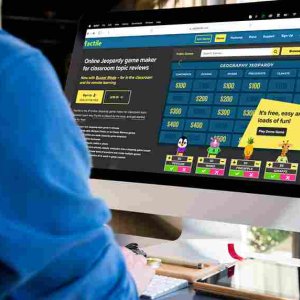New Preschool
Educational Counseling Services Paterson New Jersey Hours Monday-Friday 7 30 am-5 30 pm Drop-IN ( school close) 25.00 per day Weekend Care Saturday 8 00 am-2 00 pm Kids Night Out 5pm-10pm Friday 25.00 per session Saturday5pm-10 pm 25.00 per session Summer Enrichment 8 30 am-3 30pm Our Preschool Offer SOCIAL EMOTIONAL DEVELOPMENT As children move through the preschool day their teachers carefully observe and listen to them and adapt their responses to suit individual children s social and emotional needs. Preschool teachers support young students developing self-concepts and self-esteem by talking with them about their actions and accomplishments and by always showing respect for their feelings and cultures. Throughout the day teachers coach and guide children as they interact with each other and they support children s social skills and problem-solving abilities. Within this community of learners children develop the social and emotional competencies they need to fully immerse themselves in the preschool day and become successful learners. VISUAL & PERFORMING ARTS Environments that stimulate creativity through visual art music dramatic play and creative movement and dance support all aspects of development and learning. In many instances creative arts in the preschool classroom are inextricably linked to other curriculum areas and can be used as a strategy for learning about local communities different cultures and other content. When integrated in a developmentally appropriate way the creative arts promote memory cognition observation inquiry and reflection. The arts also help children appreciate beauty in the environment in their everyday world and in works of art. HEALTH SAFETY AND PHYSICAL EDUCATION Health safety and physical education in the preschool classroom encourage children s sense of self and support their emerging independence. Physical development impacts how children navigate the physical environment. Therefore the preschool environment will be organized to support both indoor and outdoor activities that maximize each child s opportunities to develop gross- and fine-motor skills as well as health and safety awareness. Teachers will provide a wide range of concrete developmentally appropriate indoor and outdoor experiences each day to assist in the development of each child including planned and spontaneous interactions promoting healthy habits that enhance lifelong well-being. LANGUAGE ARTS LITERACY The main components of literacy listening speaking reading and writing should all be encouraged and supported through conversations and activities that are meaningful to the child and that involve adults and peers. Each child s interest and motivation to engage in literacy-related activities are evident before that child is able to read or write conventionally. Children will be provided with environments that encourage literacy exploration and their emergent reading and writing behaviors will be valued and supported by their teachers. Effective language and literacy programs provide children who do not speak English with opportunities for listening speaking reading and writing in both English and the home language. It is important for the teacher to recognize the need to make modifications in the presentation of vocabulary directions storytelling reading and other oral language communication when working with children who do not speak English as their home language. These modifications may include the use of visual aids scaffolding repetition rephrasing and modeling. MATHEMATICS Teachers integrate math into all aspects of children s daily routines through individual and small-group choices and transitions they also allot time for in-depth planned small-group experiences that include mathematics interactions problem-solving and reflection. Teachers recognize the strong connections among math literacy and the other content areas. When children s early interest in math is supported by adults they develop the foundation and confidence necessary for mathematics enjoyment and proficiency in school and life. SCIENCE Preschool teachers intentionally encourage science investigations and inquiry based on their observations of children s interests and experiences as well as based on their professional understanding of appropriate science content and learning outcomes for young children. Teachers actively encourage sustained exploration of a particular topic over as long as four to five weeks of focused inquiry. Teachers understand that purposefully planned experiences within children s immediate environment and daily surroundings provide the best context for science learning. In addition preschool teachers seize opportunities for enhancing children s learning during exploration that naturally integrates math and science concepts. They purposefully introduce materials techniques and technologies that provide natural avenues to science learning. Families will always be invited to observe and participate in classroom science activities. Teachers can stress the importance of modeling a positive attitude about science by providing activity extensions for families to explore at home. Community partnerships and resources will be valued and used as much as possible. WORLD LANGUAGES In preschool children are just beginning to learn about language and how it works. Some of their language learning will focus on the languages spoken in their homes and some of this learning will focus on the languages they encounter in their community. With the growing number of young children in New Jersey who speak and understand different home languages preschool teachers and classrooms must be equipped to support children s learning in more than one language. Being bilingual can be an asset for all children. Teachers can integrate words from languages other than English into the classroom through songs daily routines and storybooks. Labels written in languages other than English can be used to identify items within the classroom. Parents and community members who speak languages other than English can be valuable resources in helping children both understand and respect the linguistic diversity present in our culture and they should be invited to share these languages with the children. TECHNOLOGY Like blocks books and crayons technology in a preschool classroom offers versatile learning tools that can support children s development in all domains. For example there are electronic storybooks that can read stories to children in multiple languages adventure games that foster problem-solving skills story-making programs that encourage literacy and creativity math-related games that help children count and classify and science activities that promote inquiry and an understanding of the world through the lens of a child. By the end of preschool children with technology experience can use pull-down menus to launch programs can negotiate menus and interfaces and feel comfortable using computers digital cameras smart toys handheld devices and game consoles for simulations art projects creating stories and looking up facts. The behaviors listed in the standards below are indicative of these understandings and should never be used as a formal measure of a child s knowledge. In addition because technology is continually evolving it is important to use this list in principle and add skills or concepts that reflect the state of the art.
-
Price: 125 USD
Category: Training & Education Services
Important!
There are a lot of advertisers on Advertigo. We cannot check them one by one.
You work hard for your money and you want a company you can rely on when you are buying or selling things. That’s why we want to help you protect yourself from fraud. In this section, you’ll find informative tips and other useful material to stay informed and help reduce your chances of falling victim to scammers.
Please understand that Advertigo.net is a free service to help buyers and sellers (and etc.) find one another. Advertigo.net is not involved in any transactions and can not police the actions of our many users.
Useful links
Similar ads
Learn ethical hacking online – job-ready cybersecurity course
Start your cybersecurity journey with the best online hacking course!
Learn ethical hacking step by
Adam Smith
Ultimate cyber security training – learn ethical hacking online
Enroll in our comprehensive cybersecurity bootcamp to gain top-notch skills in ethical hacking, penetration testing,
Adam Smith
Helppo saas - online tutoring management software
Helppo Saas is a tutoring business management software designed to manage student records, online bookings,
Helpposaas
Create fun & engaging jeopardy games with factile
Looking for an easy and fun way to engage students in learning? Factile is the
Factile
Best homework help online services in usa - tutorlancer
Looking for expert homework help? Tutorlancer offers the best online homework help services in the
Tutorlancer
Education
Brainfood Academy is an online education for the future of our children. Tutoring and kindergarten
James Anthony
Enrol Your Children in a Leading School in the Toronto Area Tri
Trillium School is one of the leading children s schools in the Toronto area. Our
Trillium School
Coaching in Business Planning
Professional Business owner available to coach businesses which are struggling. Learn from someone who has
Gail Cavanaugh
Digital transformation Data course- tesseract.academy
Digital Transformation data course teaches to Effectively Lead People Data Science AI data science data
Tesseract Academy
Basketball Volleyball Football and Track and Field
The ONLY Proven 3-Step Jump Training Program That Adds AT LEAST 9 15 Inches To
Tim Anderson




